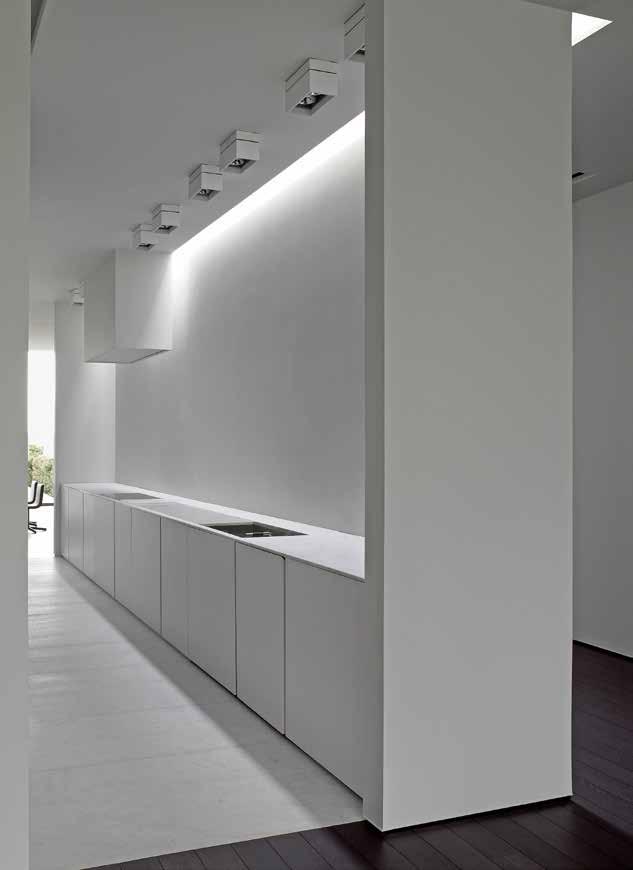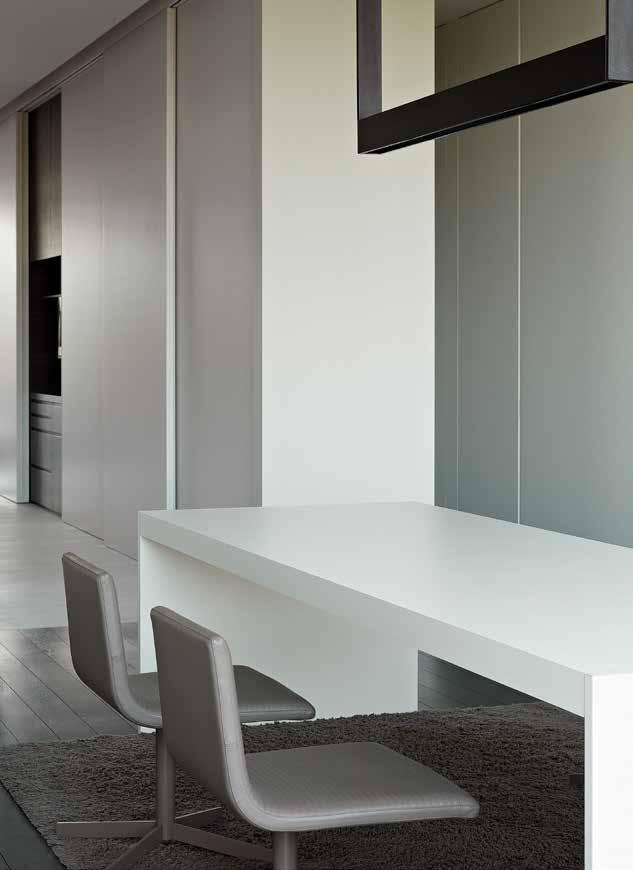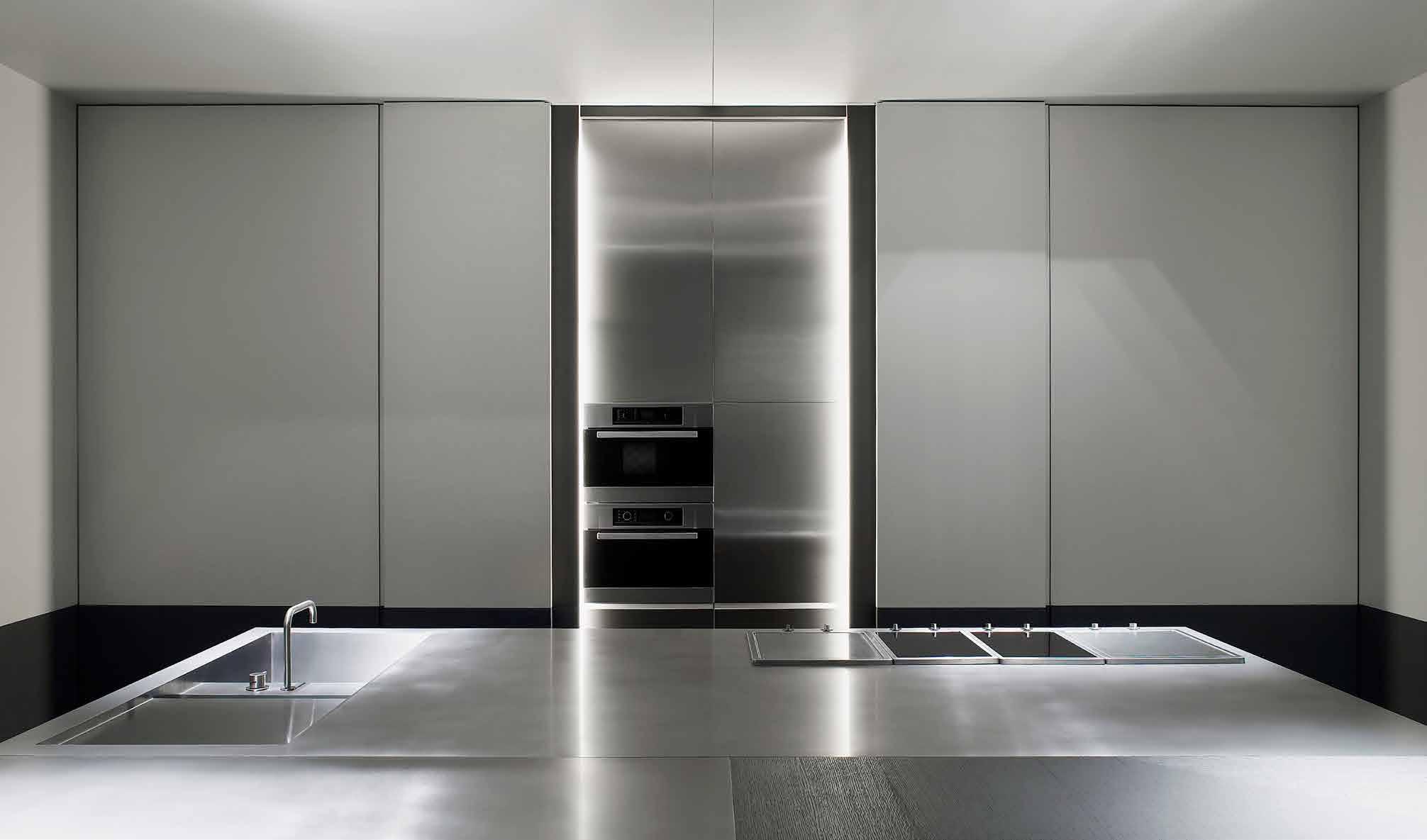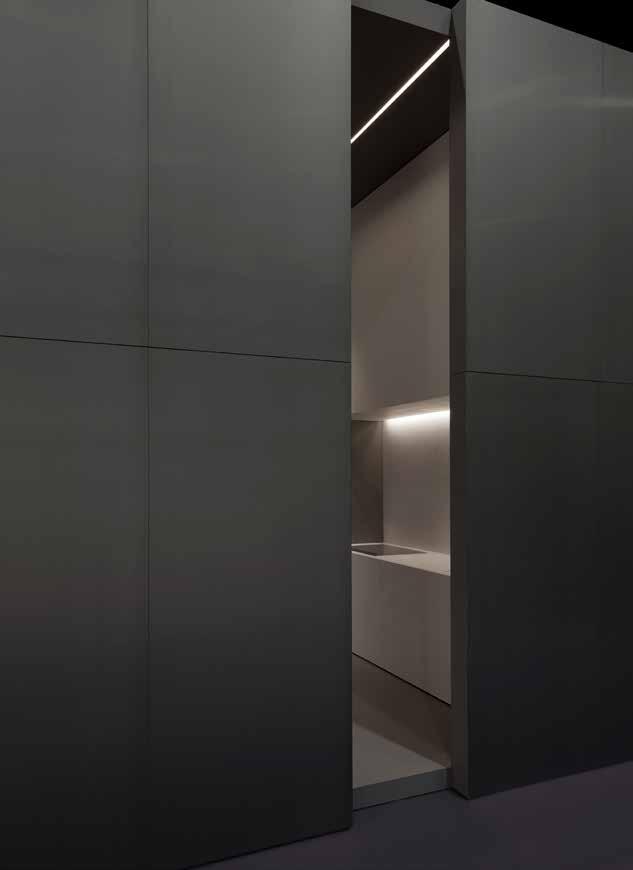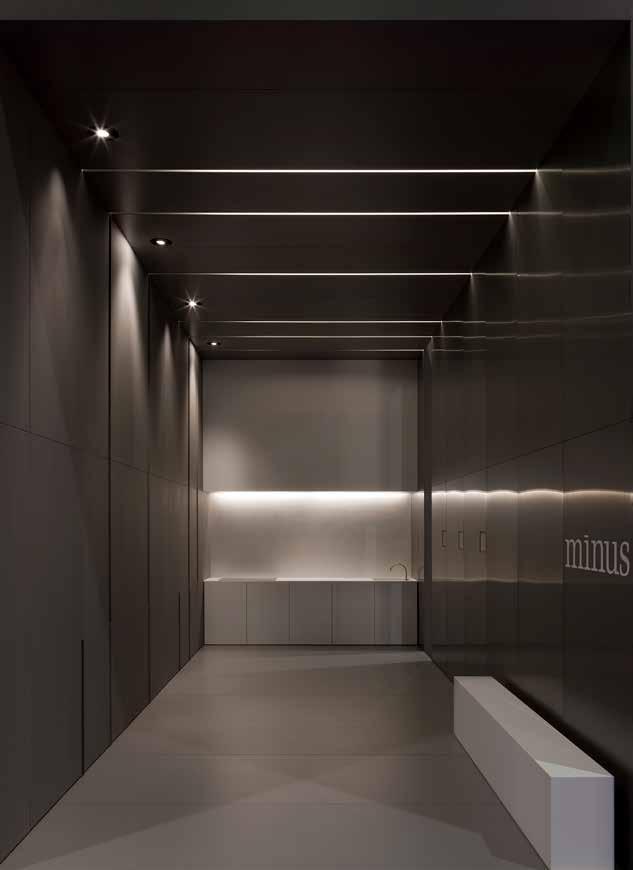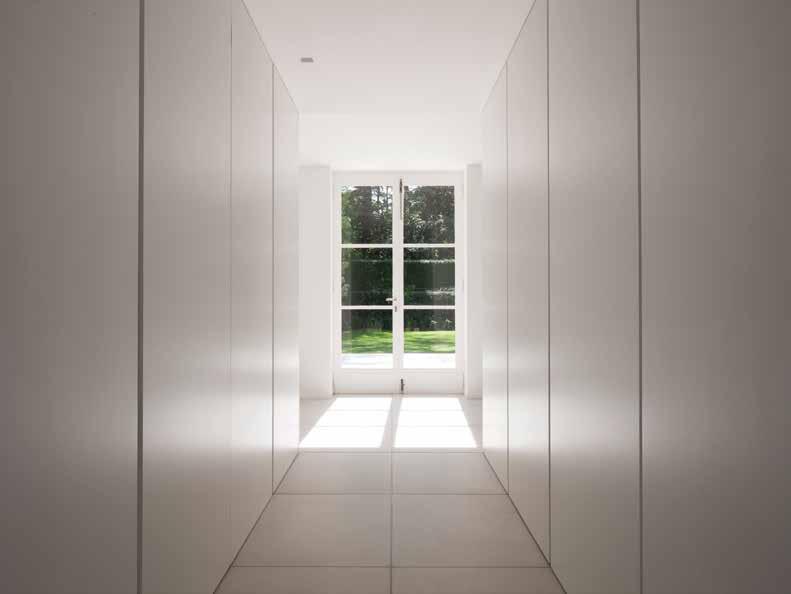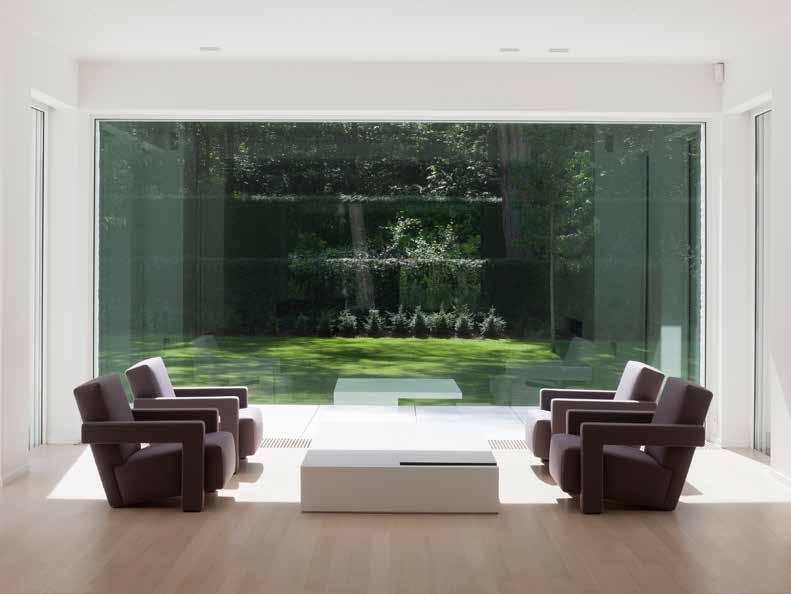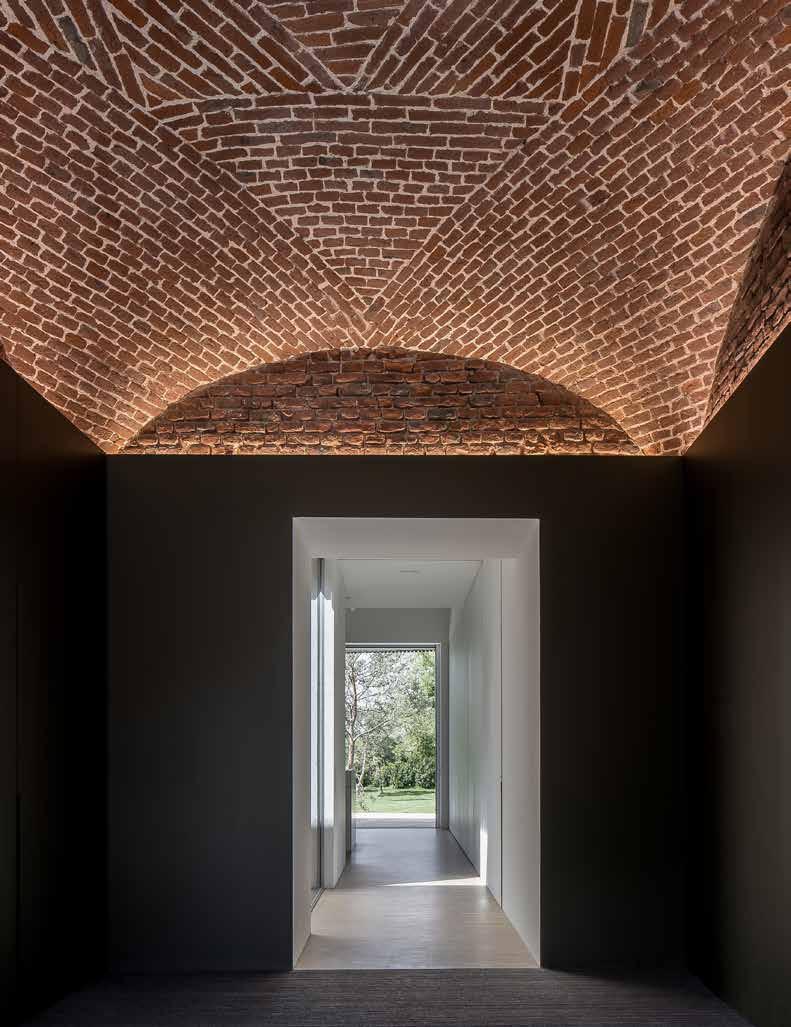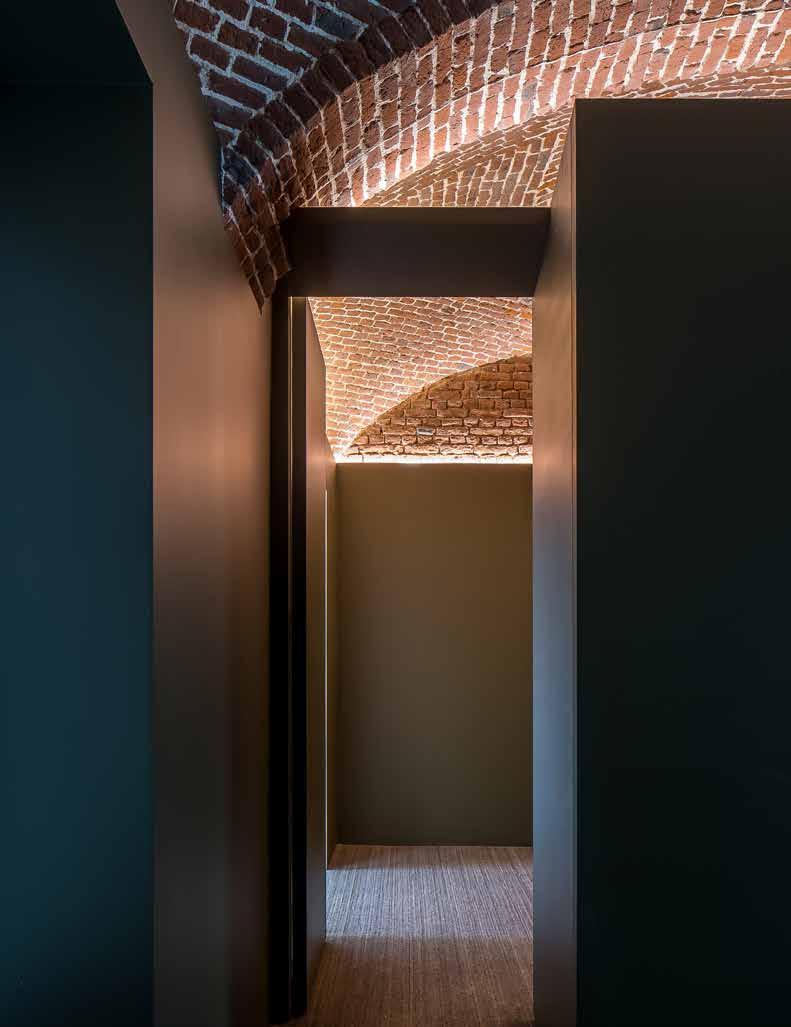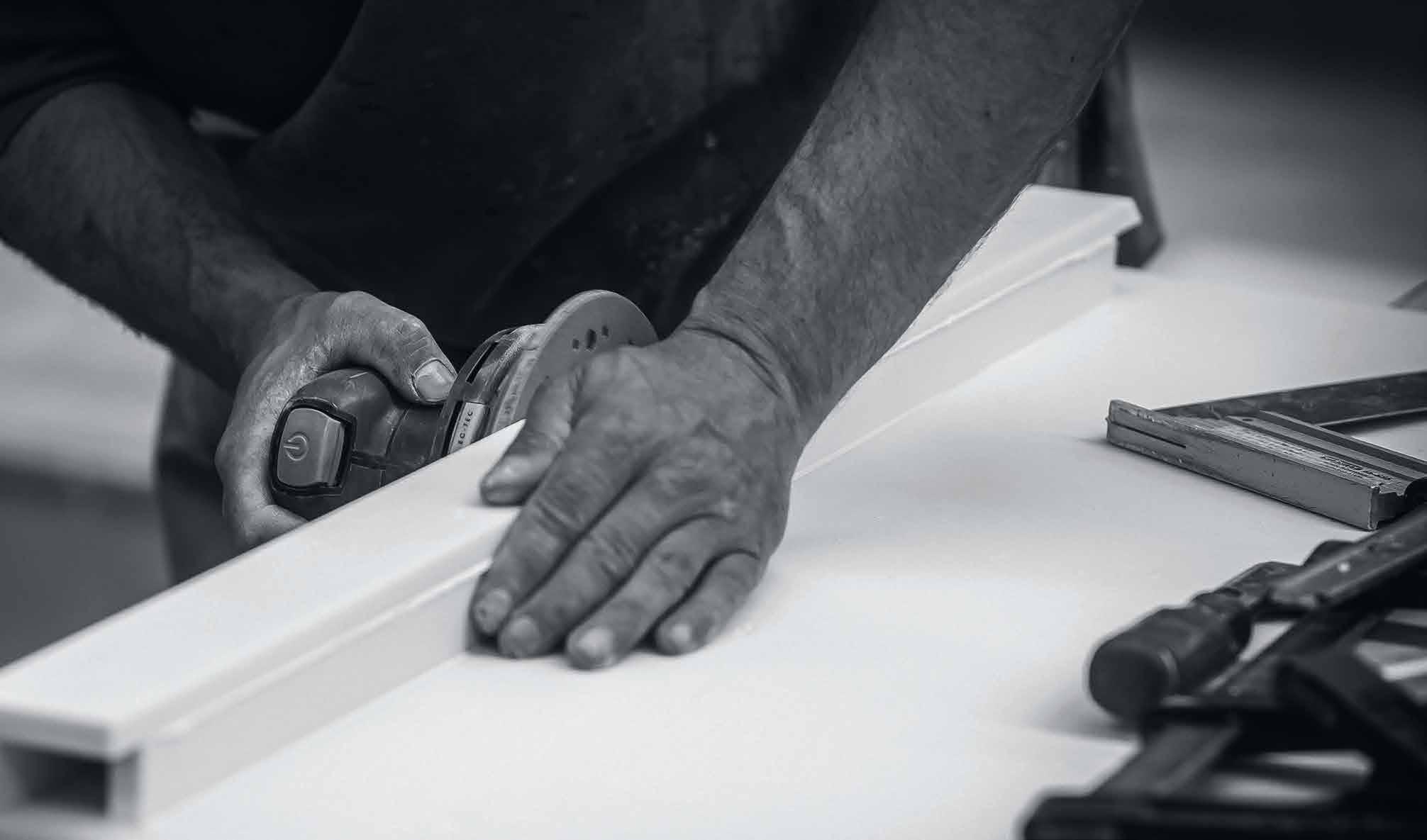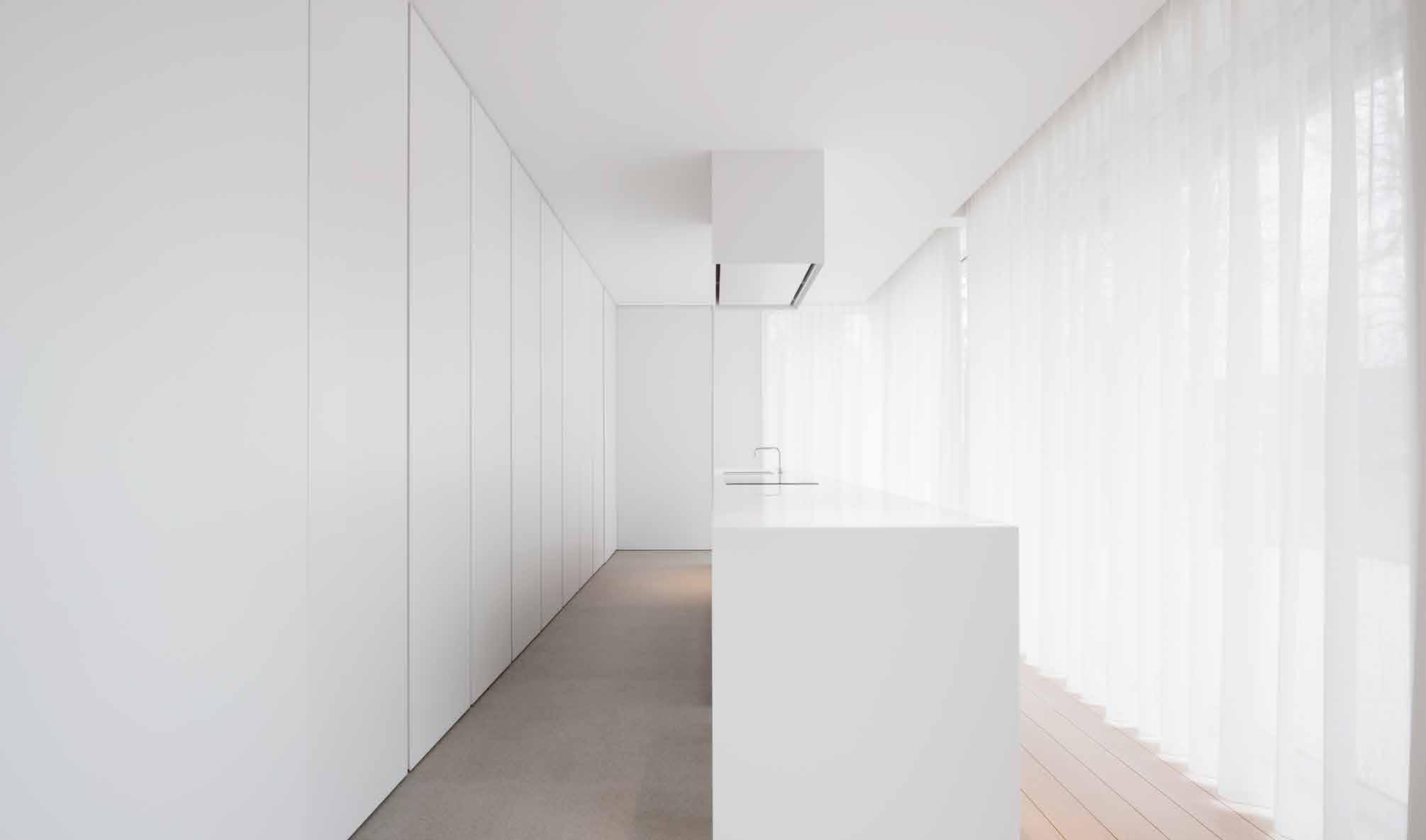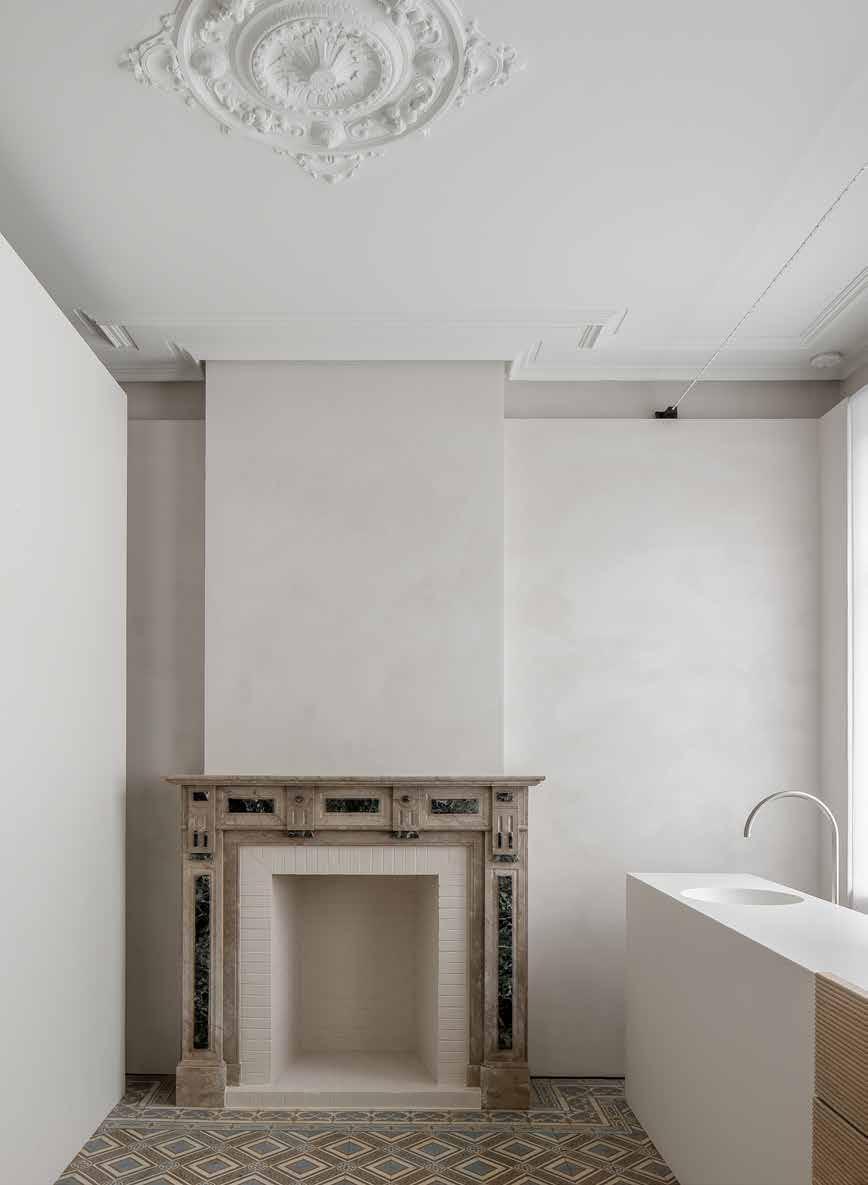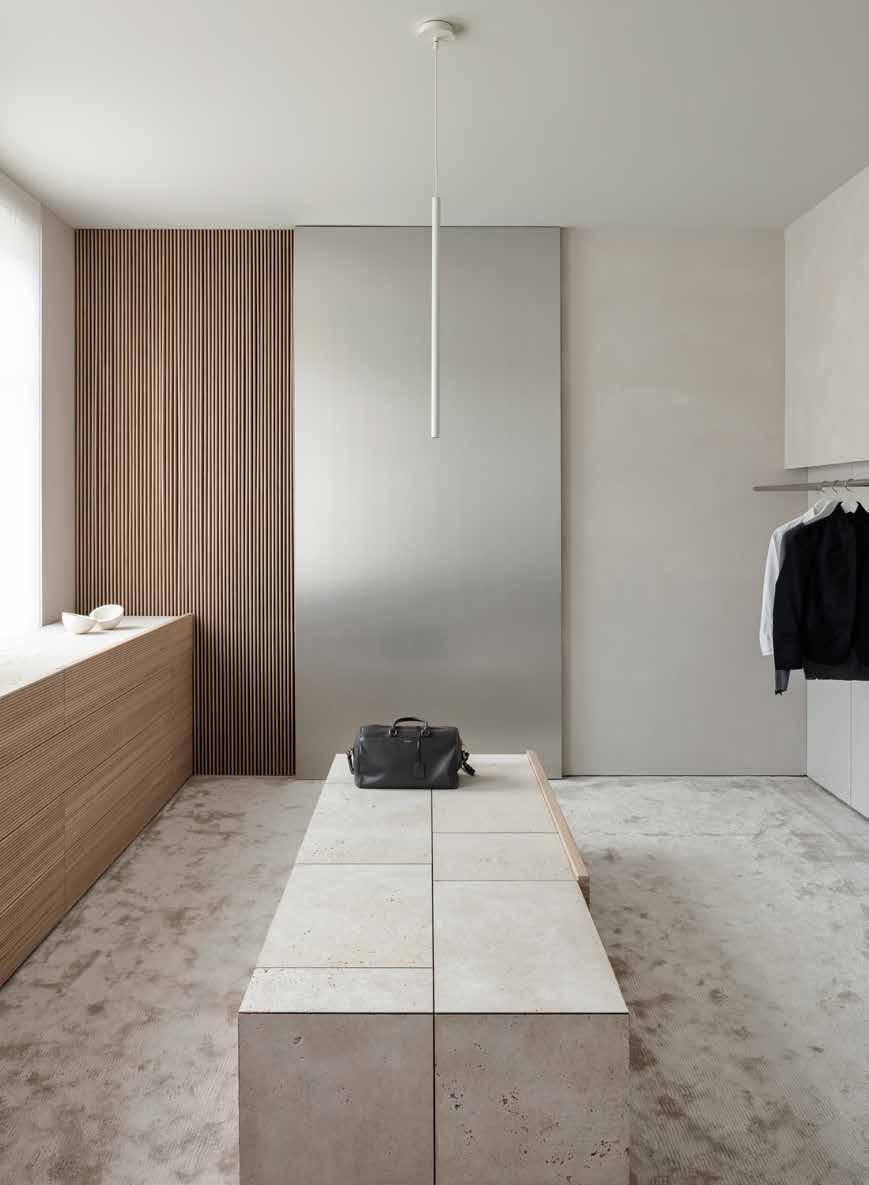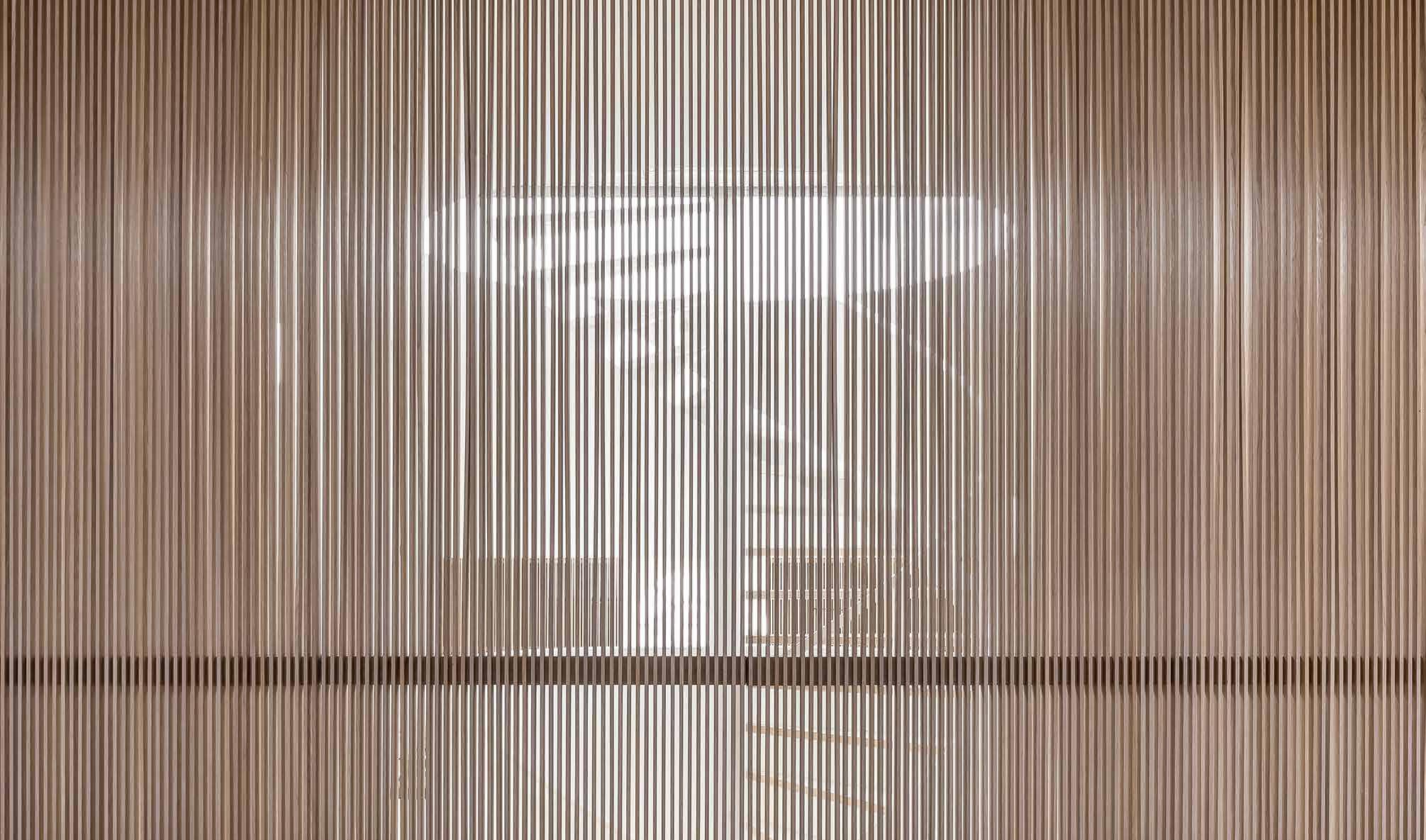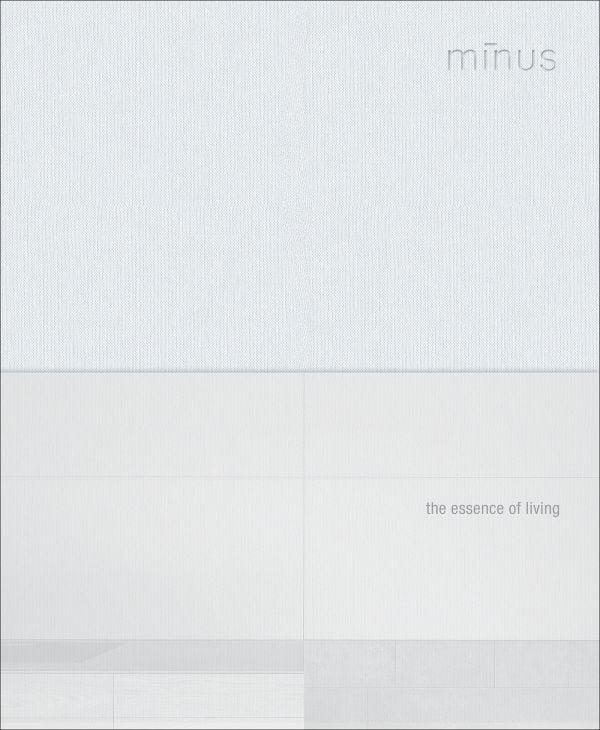
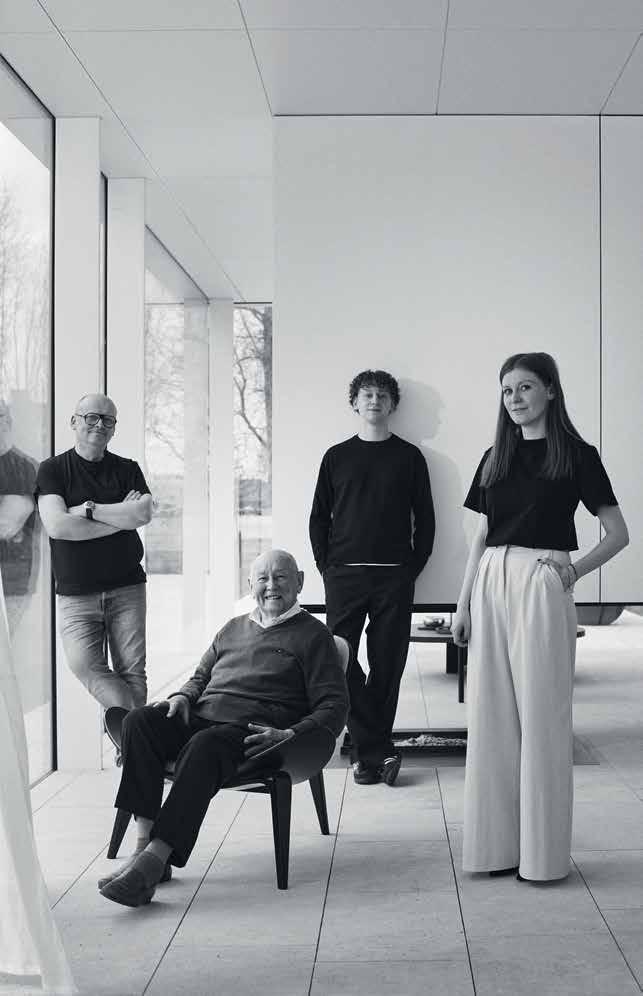
was it always your dream to have your own design studio?
sp: ‘my sole ambition has always been to make beautiful things. having a business didn’t hold much appeal for me. but when wim and i took over the furniture workshop, the idea was always to combine it with a design studio. we felt that it would allow us to make furniture that no one else could or wanted to make. and we pulled it off. thanks to our craftsmanship and extensive knowhow, we have the technical skill to produce almost anything. often, when we draw something, the joiners will say, “it can’t be done.” in that case, we look for a solution together. that’s our strength.’
can you share key turning points in your career?
wc: ‘besides the decision to take over the family business, our first participation in interieur kortrijk had a tremendous impact. we presented a very conceptual kitchen, which was an international hit. this led to talks in belgium and abroad, as well as design commissions. our subsequent participations in this design and interior event also always boosted minus’s profile.’
how do you work together?
wc: ‘sophie and i are each other’s polar opposites: i am a methodical person, and sophie is not. this has the advantage that we complement each other perfectly. sophie is much more artistic and still surprises me with ideas i would never come up with. i excel in technical elaboration. in that sense, we work sequentially, rather than together.’
being good at what you do does not mean you are good at business. how do you reconcile the two?
wc: ‘we grew organically, starting out with two employees in the workshop. after ten years, we had ten employees. we almost ended up with burnout because we had too much on our plates. we did everything together: design, admin, production preparation, and site supervision. we wore too many hats and worked long, long hours. during our training, we learned how to think and dream, but they didn’t teach us about costing and budgeting. so sophie and i took a one-year course at vlerick, specifically for smes.’
did minus change course after this training?
wc: ‘after graduating from vlerick, we appointed an advisory board. they said, “you have a great product. we are going to help you grow exponentially.” they suggested we accept five ‘elite’ projects every year. they aimed to utilise all the research and development for these projects to create a more affordable line, enabling us to install twenty kitchens annually. we would only focus on these top-of-the-range projects. but this clashed with our way of working and our client approach. so we deliberately opted not to grow our business further. with a staff of twenty, you can just about maintain the horizontal hierarchy we aspire to. we’re control freaks who want to get to know every client and personally check every cabinet that leaves the workshop. growth seems to be the only option in business, but that’s not how we see it.’
how does sustainability influence your work?
sp: ‘it is implicit in everything we design and produce because we make things that are still valuable after twenty years. timelessness is sustainability.’
wc: ‘twenty-five years ago, we were already creating designs that were made to last for more than one generation. this is the essence of sustainability. and we achieve this by using only the best materials and techniques.’
finally, what about the next 25 years? where does the future of minus lie?
sp: ‘the future of minus definitely lies in our expertise. thanks to our know-how and skills, we are able to differentiate ourselves from the rest. i think this is also the reason behind our international success.’
wc: ‘we are proud of what we have achieved with minus. the road to excellence is hard work and is never-ending. our way of life and living is constantly evolving, and as a design studio, we need to respond to that. we are also seeing that, in contrast to social equality, people are looking for interiors that are unique and bespoke down to the smallest detail. this comprehensive form of customisation is our future.
